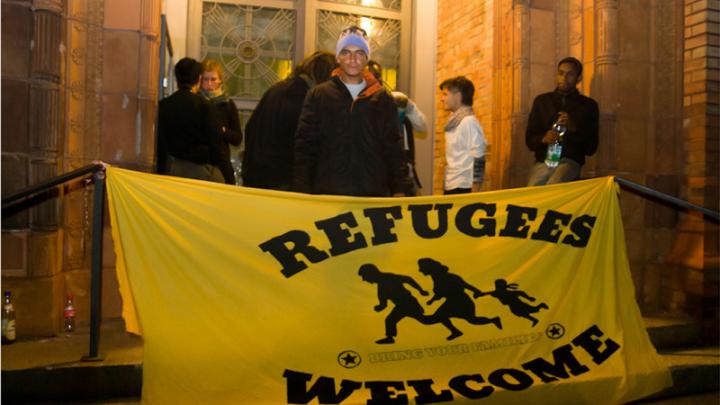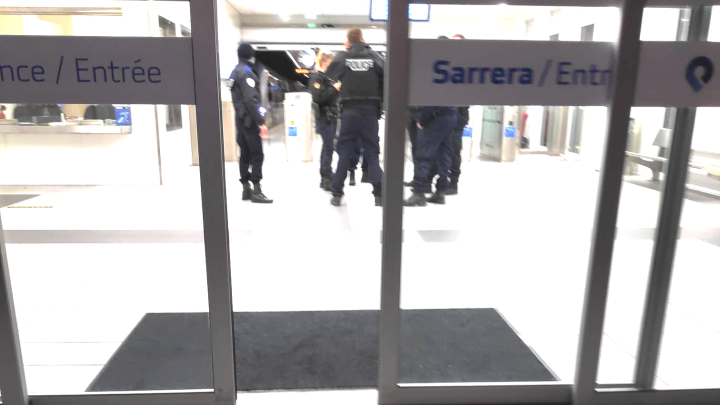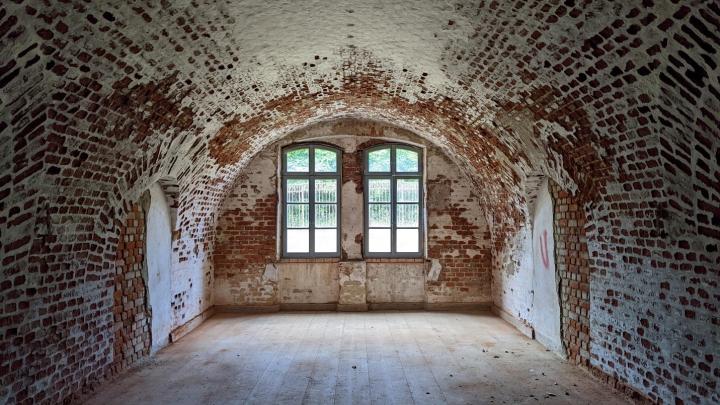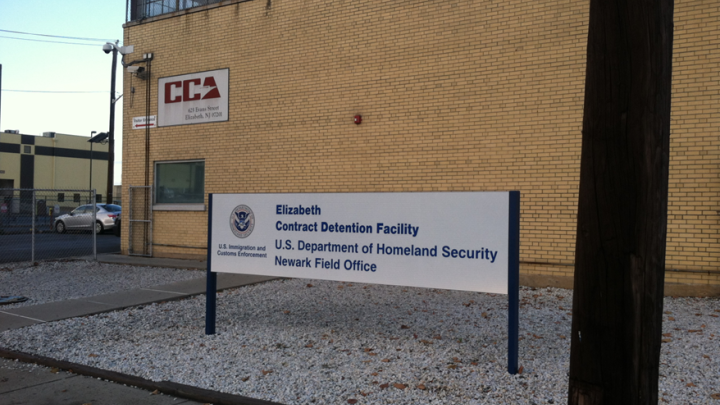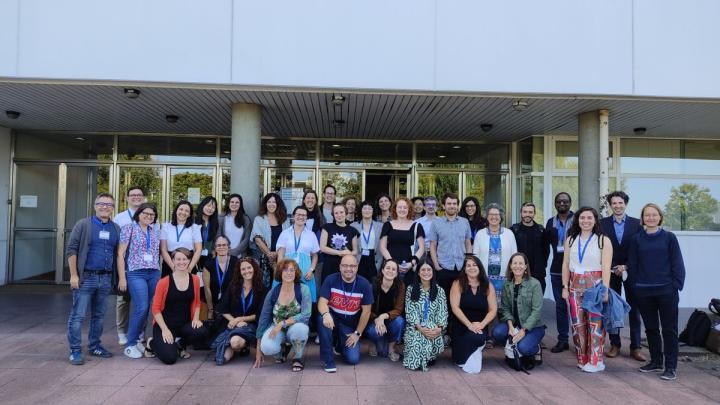Some Perplexities about Preventive Internment of Foreigners in Spain
Posted
Time to read
Guest post by Natalia Torres-Cadavid, Lecturer of Criminal Law at the University of Vigo (Spain). The ideas discussed below come from the contribution at “International Workshop Changing landscapes of immigration detention” held in September 2022, at the University of A Coruña (Spain). This is the seventh post of Border Criminologies’ themed series on 'The Changing Landscapes of Immigration Detention' organised by Ana Ballesteros-Pena and Cristina Fernández-Bessa.
Procedural criminalization of foreigners has been common in Spain (previous posts in this blog, here, here and here) and could be considered part of broader crimmigration practices. In fact, there are some particularities about the preventive confinement in Immigration Detention Centres (Centros de internamiento de extranjeros, CIEs) in Spain “when the sanction of expulsion has not been able to be made effective”, that may lead us to think that it works as a long arm of criminal law (but without its guarantees). As I explain, in this post, this is the manifestation of the so-called “criminal law of the offender”.
This post aims to give a brief description of Spanish law regarding immigrant detention as a procedural and cautionary measure to ensure deportation (when it works as a sanction). The idea is to provide non-Spanish readers with a context that could help them understand the Spanish case.

Immigration Law in Spain
The legal document that regulates immigration in Spain is Organic Law 4/2000, of January 11, on the rights and freedoms of Foreigners in Spain and their social integration (so-called LOEX). This Law contains: a) the rights and freedoms of foreigners in Spain; b) the legal regime of entry and regular or legal permanence in Spanish territory; c) the offenses related to immigration and the sanctioning regime; d) and the rules about coordination of public powers in immigration matters.
Immigration powers in Spain
The sanctioning power for immigration violations is exercised by the civil administration and follows the Common Administrative Procedure. Therefore, this is an administrative process rather than a criminal one.
Types of immigrants’ detention in Spain
The detention of foreigners under the authority of immigration powers in Spain could be:
a) a precautionary detention, for a maximum of 72 hours, prior to the judicial authorization of preventive internment or the bringing to justice; or
b) a preventive internment in CIE, for a maximum of 60 days, which proceeds when an order of return (rejected foreigners – art. 60 LOEX) or an expulsion or deportation order (offenders of the immigration law – art. 57 y 58 LOEX) has been issued and it has not been possible to carry it out, yet. This internment requires previous judicial authorization.
Preventive detention when an expulsion order has not been able to be made effective, because expulsion is considered a sanction by LOEX: the administrative expulsion or deportation can be imposed by the Spanish immigration powers following some of the immigration infractions of LOEX.
We could think that there are no problems with the preventive internment, if we consider that all the rules are written in Spanish Immigration Law, as well as the fact that the preventive interment is authorised by a judge and that the detention centres are not prison facilities. In what follows I argue that preventive internment is not just a part of a procedure.
- The sanction of expulsion does not keep a relation of proportionality between infraction and sanction.
The immigration infractions or offenses are classified in minor, serious and very serious. The main sanction that follows these infractions is a fine. Article 55.3 indicates that the sanction should be proportional to the seriousness of the infraction (assessing the degree of culpability, the damage caused, the risk created with the infraction and its importance). More specifically, Article 55 says that the infractions would be sanctioned like this, as a general rule:
- Minor infractions with a fine up to 500 euros.
- Serious infractions with a fine from 501 up to 10.000 euros.
- And very serious infractions with a fine from 10.001 up to 100.000 euros, with some exceptions.
Nevertheless, the sanction of expulsion could be applied in replacement of the fine, through a reasoned administrative resolution that assesses the facts that make up the infraction. But, indeed, sometimes: the sanction of deportation does not follow the seriousness of the infraction. According to art. 57 LOEX the sanction of expulsion or deportation could be applied just in 5 of 11 serious infractions of art. 53.1 LOEX, the a), b), c), d) and f); and in all 10 very serious infractions of art. 54 LOEX.
- Preventive internment is not applied in all cases of an expulsion sanction, just in some.
Preventive internment is highly selective because not every time that an expulsion order has been issued and it has not been possible to carry it out, a preventive internment measure can be imposed on a foreigner. Article 62 LOEX just allows preventive internment to be imposed in relation to some infractions that result in the sanctioning of expulsion.
Exceptionally, only the following infractions may lead to internment at a detention centre: from serious infractions (art. 53.1 LOEX), the “a) being irregularly in Spanish territory”; “d) failing to comply with the measures imposed for reasons of public safety” and “f) carrying out serious violations contrary to public order”. And from very serious infractions (art. 54.1 LOEX), the “a) participation in activities contrary to national security or carrying out very serious violations contrary to public order” and “b) to induce, promote, favor or facilitate for profit the clandestine immigration when do not constitute a crime”.
- Infractions that carry out an expulsion sanction that allows preventive internment are particular: all the 5 infractions are related, mainly, to the characteristics of the person, and not to the fact committed
The reasons that lead to the internment of foreigners in Spain are: irregular stay in Spanish territory, helping in clandestine immigration (when not a crime), or participation in activities contrary to public order (Organic Law on the Protection of Citizen Security) or public safety (when not a crime). What that means is that these acts do not have the entity or gravity to be considered a crime, having a fine as a legal consequence (as a general rule). But the simple fact of being a foreigner imply the possibility to be detained in a CIE. This differentiation is manifestation of the so-called “criminal law of the offender”, based solely on the classification of types of perpetrators (classes of offender) and their appropriate treatment or repression, regardless of whether they have committed a specific offense or not.
- This preventive internment is used as a punishment in itself
As explained, in theory, detention should be authorized only as a procedure to facilitate deportation. However, as the reports from the Spanish Ombudsman revealed (see 2012-2019 reports), more or less 60% of the detainees could not be deported, a situation that effectively turns preventive detention into a form of punishment, as noted previously on this blog (see here and here). Indeed, the conditions in Spanish CIEs are rough and experienced as a punishment by many foreigners detained, as noted in many studies (as an example, recently, here, here and here). As a result, preventive interment is, itself, breaking the guarantee contained in art. 25.4 of the Spanish Constitution that says: “The Civil Administration may not impose sanctions that, directly or subsidiarily, imply deprivation of liberty”.
To conclude, it is important to note that in 2020 Spain emptied its CIEs in response to Covid-19, but now detention and removal operations have begun to return to normal operations.
Any comments about this post? Get in touch with us! Send us an email, or post a comment here or on Facebook. You can also tweet us.
How to cite this blog post (Harvard style):
N. Torres-Cadavid. (2023) Some Perplexities about Preventive Internment of Foreigners in Spain . Available at:https://blogs.law.ox.ac.uk/border-criminologies-blog/blog-post/2023/03/some-perplexities-about-preventive-internment. Accessed on: 20/04/2024Share
YOU MAY ALSO BE INTERESTED IN
With the support of








